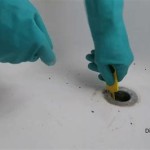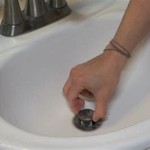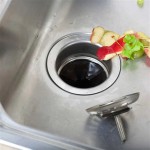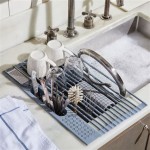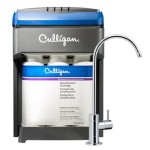The Benefits and Considerations of Drinking Water Filters Under the Sink
Access to clean and safe drinking water is paramount to good health and overall well-being. While municipal water treatment systems strive to ensure water quality, various contaminants can still find their way into homes. These contaminants can include sediment, chlorine, heavy metals, pesticides, and other harmful substances. To address these concerns, many homeowners opt for water filters, and specifically, under-sink water filters offer a convenient and effective solution.
How Under-Sink Water Filters Work
Under-sink water filters are typically installed beneath the kitchen sink and connect directly to the cold water line. These filters use various filtration methods to purify the water, removing unwanted contaminants and enhancing its taste and clarity. Common filtration methods include:
- Sediment filtration: This method removes larger particles like sand, dirt, and rust using a physical barrier like a mesh screen.
- Activated carbon filtration: This method uses activated carbon, a highly porous material, to absorb chlorine, taste and odor-causing compounds, and other organic impurities.
- Reverse osmosis: This advanced method uses a semi-permeable membrane to separate water molecules from dissolved impurities, effectively removing a wide range of contaminants, including heavy metals, salts, and bacteria.
- Ion exchange: This method exchanges ions in the water with those in a resin bed, effectively removing hard water minerals like calcium and magnesium.
The specific filtration technologies employed vary depending on the filter model and the contaminants it targets. Some filters are designed for basic sediment and chlorine removal, while others offer comprehensive purification by combining multiple filtration stages.
Benefits of Under-Sink Water Filters
Installing an under-sink water filter offers numerous advantages over other water filtration methods, such as pitchers or countertop filters:
- Convenience and Accessibility: Under-sink filters provide easy access to filtered water directly from the tap. This eliminates the need to refill pitchers or wait for countertop filters to process water.
- High Filtration Capacity: Under-sink filters typically have a higher filtration capacity than other filter types, providing a continuous supply of clean water.
- Improved Water Quality: These filters effectively remove a wide range of contaminants, including sediment, chlorine, heavy metals, and bacteria, delivering cleaner and healthier drinking water.
- Enhanced Taste and Odor: The removal of chlorine and other impurities enhances the taste and odor of drinking water, making it more enjoyable.
- Cost-Effective: While the initial installation cost might be higher than other options, under-sink filters offer long-term cost savings by eliminating the need for bottled water.
Factors to Consider When Choosing an Under-Sink Water Filter
Selecting the right under-sink water filter depends on factors such as your budget, water quality concerns, and desired features. Here are key points to consider:
1. Filtration Technology
Determine the specific contaminants you want to remove and the level of filtration you require. Basic filters might suffice for removing sediment and chlorine, while advanced filters like reverse osmosis systems are needed for comprehensive purification.
2. Filter Cartridge Life
Consider the filter cartridge's lifespan and replacement cost. Some filters have longer lifespans than others, impacting maintenance frequency and overall cost.
3. Flow Rate
The flow rate dictates the speed at which water is filtered. Choose a filter with a flow rate that meets your household's water usage needs. Higher flow rates allow for faster dispensing, especially during peak hours.
4. Installation Complexity
Assess your ability to install the filter yourself or if professional assistance is needed. Some filters are easier to install than others, with varying levels of plumbing expertise required.
5. Compatibility
Ensure the filter is compatible with your existing plumbing system, including the faucet and water lines. Check its dimensions and connection types to avoid compatibility issues.
Investing in an under-sink water filter can significantly improve the quality of your drinking water and provide peace of mind knowing you're enjoying clean and healthy water. By carefully considering the factors discussed above, you can make an informed decision and choose the best filter for your household's needs.

Apec Water Systems Ultimate Compact 4 Stage Under Sink Reverse Osmosis Drinking Filtration System Ro Quick90 The Home

Drinkpod Under Sink Water Filtration System 20 000 Gallons

Installing An Under Sink Water Filter Fine Homebuilding

Apec Roes 50 5 Stage Reverse Osmosis Drinking Water Filtration System

Apex Mr 2032 Under The Counter Water Filter System Alkaline

The Best Under Sink Water Filter For 2025 Reviews By Wirecutter

3m Aqua Pure Under Sink Full Flow Water Filter System Ap200 Solventum

Kraus Purita 2 Stage Under Sink Water Filtration System With Digital Display Monitor Fs 1001 The Home

Apex 50 5 Stage Reverse Osmosis Water Filter System

Kraus Fs 1001 Ff 100mb Purita 12 Inch 2 Stage Under Sink Filtration System With Single Handle Drinking Water Filter Faucet Matte Black


